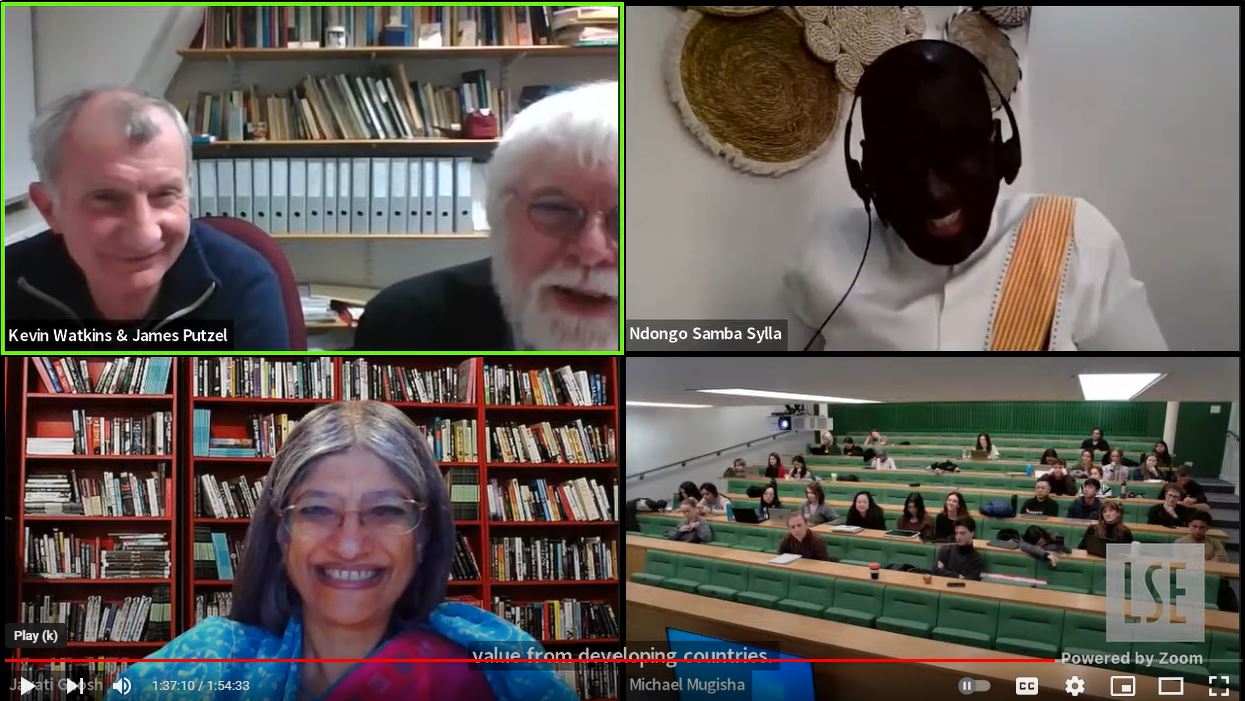As COP26 continues in Glasgow, Professor of Environment and Development Tim Forsyth writes on the use of nature-based solutions and what they mean for climate change objectives. Tim Forsyth was a specialist adviser to the UK Parliament International Development Committee for inquiries on international development around COP26. This article is part of a series on the ID blog, ‘COP26: Climate accountability‘.
The announcement at COP26 that countries have agreed to halt and reverse global deforestation has been praised by Lord Zac Goldsmith, the UK’s international environment minister, who said “Putting nature at the heart [of the COP] has been my obsession”… “there is no credible response to the climate crisis… that does not involve protecting and restoring nature on a massive scale.”
But there are still important questions to be asked about what this commitment means, and about so-called nature-based solutions to climate change.
In October 2021, the UK Parliament International Development Committee published a report about the UK government climate change policy, which questioned the UK government’s “default position” of investing in nature. This report was prepared by a cross-party group of MPs in consultation with expert witnesses drawn from fields of climate science and development, and two specialist advisers including me. This report urged that government policy adopt a more critical approach to nature-based solutions, and instead pay more attention to the social and economic drivers of vulnerability to climate change in poorer countries.
Nature-based solutions are actions that can combine the sustainable use and protection of ecosystems with activities to support human well-being. They attract many supporters because they offer the possibility of combining climate change objectives with the conservation of biodiversity and restoration of ecosystems. Indeed, proponents have promised “a just, green and nature-positive recovery” for the planet.
Nature-based solutions also offer a pathway to another concept discussed at COP26: “net-zero” emissions. Net-zero means that countries, companies, or indeed individuals, should balance the greenhouse gases they emit with actions that take greenhouse gases out of the atmosphere, such as tree planting. Indeed, the environmental NGO, The Nature Conservancy projected that so-called “natural climate solutions” can provide 37% of cost-effective greenhouse gas mitigation required for a 66% chance of holding warming to below 2°C—a statistic often repeated by other organizations.
These attractive statistics, however, have been questioned as misleading because they are based on potential carbon absorption by “natural” ecosystems based on various implausible assumptions. For example, roughly half of this projection comes from afforestation or reforestation requiring nearly 800 million hectares, or roughly the size of Australia, which was mostly proposed for Latin America. There was no discussion of the political or social costs of these actions, or that such figures imply switching wood production to tree plantations, which simultaneously act as carbon sinks.
A key concern here is the extent to which nature-based solutions and net-zero in effect mean a greater commitment to using large-scale tree plantations. Critics have worried that using plantations might reduce attention to other actions that can reduce emissions from industrial or urban areas. Plantations can also threaten potential negative human rights impacts on rural communities or countries where widespread tree planting is planned, and which have contributed comparatively less to climate change than others. Plantation forestry also offers less in terms of biodiversity than other forms of forest restoration. There have also been doubts about whether forest or landscape-focused, climate policies can actually deliver required reductions in gases.
Indeed, a consortium of 21 NGOs including Greenpeace, Rainforest Foundation UK, and the African Union of Conservationists wrote an open letter to the COP26 Presidency arguing that “nature-based solutions” are neither solutions nor natural because they exaggerate mitigation benefits, and they potentially endanger local peoples’ rights. Yet, before COP26 Boris Johnson stated that “planting millions of trees” was part of the UK’s climate change policy.
The point of these criticisms is not to weaken climate change policy, but instead to strengthen it. There are significant questions about how far current strategies for net-zero, or nature-based solutions, can actually produce greenhouse gas reductions necessary. Economists such as Nicholas Stern have always emphasized that commitments to net-zero should be based on wholesale transformations in industrial technologies such as energy as well as careful landscape management.
There needs to be more public debate about nature-based solutions and net-zero climate pathways. Simply talking about “nature” at the heart of government policy does not explain how far these policies will actually make poorer people more vulnerable, or capture the carbon projected.
The desire to do something about climate change and deforestation should not blind us to asking important questions about whether proposed solutions are actually feasible, or might generate other difficult problems.
The views expressed in this post are those of the author and in no way reflect those of the International Development LSE blog or the London School of Economics and Political Science.
Photo: Amazon deforestation, 2019. Credit: Animal Equality International on Flickr





